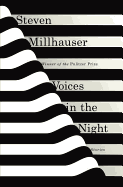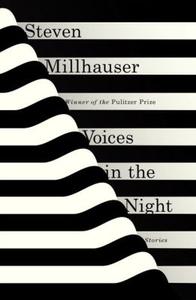

A characteristic Millhauser story starts off in an unnamed, nondescript town where an odd event or series of them quickly alters everyday life. That's the essential plot device in "Phantoms," where people start seeing night visions, and "Elsewhere," where a collective wanderlust emerges over the course of one summer. "A Report on Our Recent Troubles" describes a wave of suicides that devastate one town, while "Mermaid Fever" is the account of what happens when a dead mermaid washes up on the beach and quickly is put on display by the town's historical society. Millhauser's gift lies in his ability to maintain the plausibility of these stories while at the same time allowing their surreal qualities to flourish.
Millhauser also demonstrates his mastery when he turns to familiar source material. In "Rapunzel," he reimagines the classic fairy tale, shifting perspectives from prince to sorceress to their love object to tell a story of romantic obsession and the constancy of true love. He relies on a similar structure in "A Voice in the Night," the story that concludes the collection, linking the biblical prophet Samuel to a young boy in 1950s Connecticut--and that same boy in his 60s, now an established author--in their encounters with the dilemma of faith. "The Pleasures and Suffering of Young Gautama" is a luxuriant account of the young Buddha's attempt to break the fetters of his royal life to realize his destiny.
One of the most striking aspects of Millhauser's style is the near absence of anything that looks like conventional dialogue. Only "Miracle Polish" (the tale of a product whose magical glass-cleaning properties permanently alter one romantic relationship) and "Sons and Mothers" (a frightening story of the encounter between an adult son and his mother on one of his infrequent visits) contain any meaningful number of scenes in which characters talk to each other. Because Millhauser excels at exposition and pacing, this unusual feature of his work doesn't diminish its appeal.
"The world within the world is too small for a man with a restless heart," thinks Chanda, the Buddha's companion. In these enchanting, unsettling stories, Steven Millhauser bursts the boundaries of the world we think we know to help us see it anew. --Harvey Freedenberg, attorney and freelance reviewer
Shelf Talker: In 16 stories, Steven Millhauser transcends the boundary between fantasy and reality.

